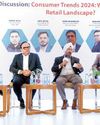
All of us feel alarmed, express sympathy with the victims, even participate in campaigns to raise money and materials for them. Some more energetic ones even travel to the affected and help feed the hungry, give them medicines and clothes.
National and state 'disaster relief outfits have become better organised and are able to restrict the number of lives lost to a bare minimum. All too soon, we forget the incidents, go back to our work and it is once again 'business as usual'. What happened in Uttarakhand, Kashmir, Chennai, Mumbai, Kerala and in Odisha is still fresh in our collective memory. This year 30 August brought frightening reports on social media: "Bangalore comes to a halt; schools and colleges shut, government declares a holiday while all agencies come to grips with the unprecedented floods following incessant rains that lashed the city, IMD issues yellow alert" etc.
Bangalore, as we are all aware, is now literally the showcase city of the country. Almost all 'Fortune 500' companies, as well as many leading domestic ones have set up their tech centres or R&D labs here. The city draws probably more attention than even Delhi as far as business is concerned.
Imagine the collective loss of man hours spent by people in reaching their work places or in food and other supplies reaching them on time or missed flights, trains etc. Unfortunately, such EWEs are becoming all too frequent. And, it is not only in India.
There are well publicised international cases of extreme heat in Europe, freak snowfall in Dubai and devastating floods in Manhattan. The EWEs monster doesn't differentiate between rich and poor nations! Rising sea levels have already claimed many low lying islands and areas near the oceans. Countries like the Maldives face being totally submerged. Parts of Bangladesh are not far behind. Thankfully, almost everyone now admits that:
(a) there is climate change
Denne historien er fra December 31, 2022-utgaven av Businessworld India.
Start din 7-dagers gratis prøveperiode på Magzter GOLD for å få tilgang til tusenvis av utvalgte premiumhistorier og 9000+ magasiner og aviser.
Allerede abonnent ? Logg på
Denne historien er fra December 31, 2022-utgaven av Businessworld India.
Start din 7-dagers gratis prøveperiode på Magzter GOLD for å få tilgang til tusenvis av utvalgte premiumhistorier og 9000+ magasiner og aviser.
Allerede abonnent? Logg på

Technology, AI Driving Warehousing Sustainability
Anshul Singhal on how Welspun One is rapidly transforming Grade-A logistics and industrial parks across India, offering integrated fund development and asset management for large-scale warehousing solutions

DECODING RETAIL'S NEXT FRONTIER
As brands pivot towards omnichannel ecosystems and startups challenge legacy frameworks, the focus sharpens on experiential retail, sustainability and data-driven personalisation.

SORORITY OF WOMEN OF METTLE
Awinter afternoon in mid-December found quite a crowd at the Oxford Book Store on Connaught Place, as bibliophiles congregated at a corner to listen to three women authors, diverse in their passions, but drawn together by an urge to tell their story.

THE LEGACY OF THE AMARNATHS
IN NOVEMBER 2017 the management committee of the Delhi Cricket Association named the eastern stand of the Feroze Shah Kotla ground the Mohinder Amarnath stand.

PUTTING THE POWER IN THE POWERHOUSE
The Asus ExpertBook P5 is powered by an 8-core 8-thread Intel Core Ultra 7 Series 2 processor that clocks a maximum speed of 4.8 GHz, but it does not have hyperthreading. It is light weight, with a smooth glass touch pad. The laptop almost has all the I/O ports you could possibly need in a business laptop, making it an extremely lucrative option for professional computing, says

"We must be aware of our energy and water consumption"
BW Businessworld caught up with actor, philanthropist, and climate warrior BHUMI PEDNEKAR to chat about climate change and more.

"Cooking is a passport to the world"
In conversation with renowned CHEF MANJIT GILL, Advisor at Kikkoman India and President, Indian Federation of Culinary Associations (IFCA). As the former Corporate Chef of ITC hotels, Chef Gill has helped shape iconic restaurants, such as the Bukhara, Dum Pukht, and Dakshin. He has had the privilege of serving former American Presidents Barack Obama, Bill Clinton, George Bush, and the French, Canadian, British and German premiers. In 1992, Chef Gill had the opportunity of being invited to cook for Prince Charles and Lady Diana, at the Palace of the Maharaja of Jaipur. He was awarded the Lifetime Achievement Award from the Ministry of Tourism in 2007.

Strengthening Middle Management for Organisational Resilience
WHAT HOLDS AN organisation together in chaos? Is it visionary leadership, cuttingedge strategies, or robust technology?

The Retail Trailblazers
A look at companies that are making a positive impact on India's growing retail sector with their future fit business and marketing strategies.

Driving Conscious Consumerism
VIDIT JAIN, Co-founder of Kindlife, is leading the charge in revolutionising the intersection of technology and conscious consumerism.